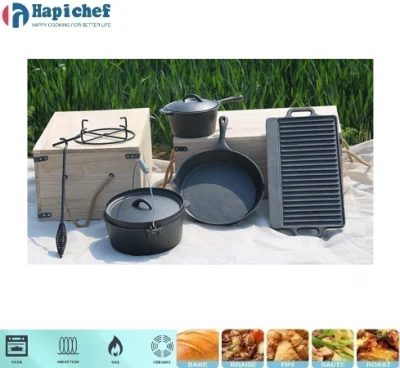Compliance Standards for OEM Exporters Including BSCI, LFGB, and FDA Requirements
The Importance of Compliance in Manufacturing OEM, BSCI, LFGB, and FDA Standards
In today's global marketplace, compliance with regulatory standards is critical for manufacturers, especially for those engaged in Original Equipment Manufacturing (OEM). Ensuring compliance not only facilitates smoother exports but also builds trust with consumers and business partners. Notably, adherence to standards such as BSCI, LFGB, and FDA plays a crucial role in maintaining product quality, safety, and ethical manufacturing practices.
Understanding OEM and Its Significance
Original Equipment Manufacturing (OEM) involves producing goods that are branded and sold by another company. OEM manufacturers must ensure that their products meet various international standards for quality and safety. By aligning with such standards, OEMs can enhance their credibility and attract a larger customer base. Furthermore, adherence to regulatory requirements often opens doors to new markets and reduces the risk of legal and financial repercussions.
BSCI Commitment to Ethical Practices
The Business Social Compliance Initiative (BSCI) is a significant framework that emphasizes ethical labor practices. It aims to improve working conditions across global supply chains by setting clear standards in areas such as workers’ rights, fair wages, and safe working environments. Manufacturers that comply with BSCI principles demonstrate their commitment to social responsibility, which is increasingly important to consumers today. By adopting BSCI standards, OEMs not only protect the welfare of their workers but also bolster their brand image, fostering consumer loyalty and trust.
LFGB Ensuring Product Safety
oem bsci lfgb fda exporter

The German Food and Feed Code (LFGB) sets stringent requirements regarding food safety and consumer protection. It is particularly relevant for manufacturers producing kitchenware, cookware, and other food-contact materials. Compliance with LFGB ensures that products are safe for consumers and free from hazardous substances. For OEMs exporting such products to Germany and other EU countries, meeting LFGB standards is essential to avoid costly recalls and harmful liabilities. Moreover, showcasing compliance with LFGB can serve as an effective marketing tool, as consumers are increasingly aware of and concerned about product safety.
FDA Regulatory Compliance for Health Products
In the United States, food and drug safety are regulated by the Food and Drug Administration (FDA). OEMs that manufacture medical devices, food products, or dietary supplements must comply with FDA regulations to ensure that their products are safe for consumption. The FDA’s rigorous approval process often involves extensive testing and documentation, which may seem daunting. However, achieving FDA compliance not only enhances product safety but also provides a competitive advantage in the U.S. market.
The Role of Exporters
Exporters play a vital role in ensuring that products comply with international standards. They serve as intermediaries between manufacturers and foreign markets, facilitating the complex process of navigating various regulatory requirements. Exporters must be well-versed in the specific compliance needs of each destination country, which often include BSCI, LFGB, and FDA standards. By ensuring that products meet these stringent criteria, exporters safeguard both the manufacturers and consumers, fostering trust and reliability in global trade.
Conclusion
In conclusion, the interconnectedness of OEM, BSCI, LFGB, and FDA compliance standards underscores the importance of ethical manufacturing and consumer safety in today’s global economy. Manufacturers who prioritize these standards not only comply with legal requirements but also enhance their brand reputation and consumer trust. In an increasingly discerning market, being compliant is not just a legal obligation; it is a strategic advantage that can lead to sustained success and increased market share. As manufacturers and exporters navigate the complexities of international trade, embracing these standards will be key to thriving in a competitive landscape.
-
Why Every Kitchen Needs a Casserole Cast Iron DishNewsJun.24,2025
-
Experience the Tradition and Quality of Cast Iron CookwareNewsJun.24,2025
-
Double Sided Cast Iron Grill PanNewsJun.24,2025
-
Cast Iron Dutch Ovens You’ll Actually UseNewsJun.24,2025
-
Buy Cast Iron Griddle for Everyday CookingNewsJun.24,2025
-
Barbecue Iron Grill Cooking PowerNewsJun.24,2025
-
Standard Product Lines from Cast Iron Cookware SuppliersNewsJun.11,2025
